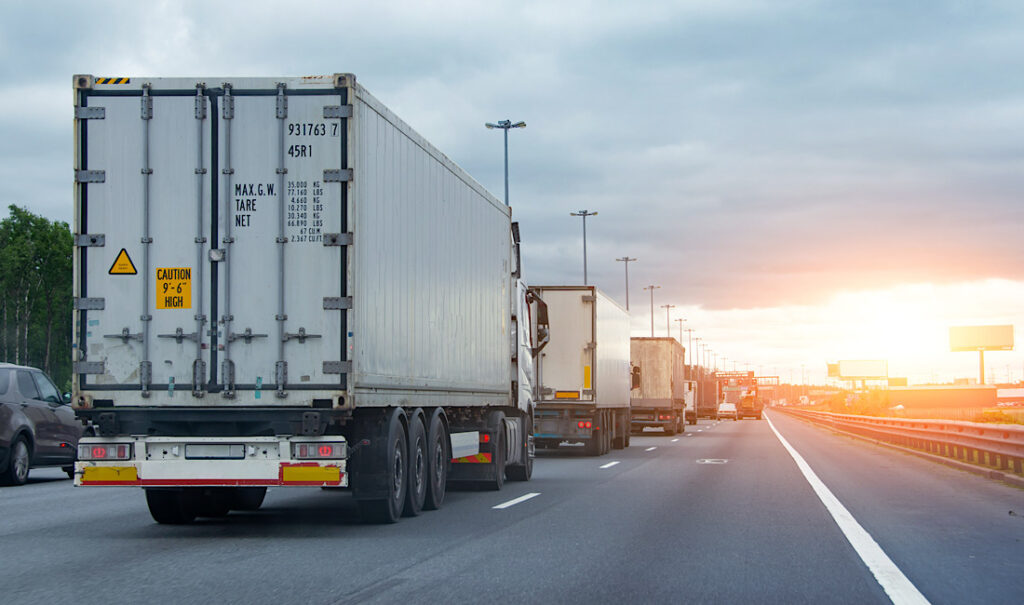
When a large commercial truck collides with a passenger vehicle, the results can be devastating. Due to their size and weight, trucks often cause serious injuries, fatalities, and property damage in even low-speed collisions. In Georgia, determining who is liable for a truck accident involves more than just figuring out who was behind the wheel. The law recognizes that multiple parties may share responsibility—and knowing who can be held accountable is critical for recovering damages.
This guide breaks down Georgia's truck crash laws, who may be liable in a trucking accident, and how liability directly impacts your legal rights.
Understanding Liability in Georgia Truck Accidents
Georgia follows a modified comparative negligence rule. This means that an injured party can recover damages as long as they are less than 50% at fault for the crash (O.C.G.A. § 51-12-33). However, proving fault in truck accidents is often complex because multiple parties can be involved, and each may have contributed to the crash in different ways.
Unlike standard car accidents, truck crashes typically involve:
- Commercial drivers
- Employers or trucking companies
- Maintenance contractors
- Manufacturers of vehicle components
- Cargo loaders or logistics firms
Each of these parties can be held liable under Georgia law depending on the circumstances of the crash.
Primary Parties That May Be Held Liable
The Truck Driver
If the driver was speeding, fatigued, distracted, or under the influence, they can be held personally responsible for the crash. Violations of federal or state trucking regulations, such as hours-of-service limits or improper logbooks, are key pieces of evidence in establishing fault.
The Trucking Company (Carrier)
Under the legal doctrine of respondeat superior, employers are typically liable for the actions of their employees while on duty. Trucking companies may also face direct liability if they:
- Failed to properly train or screen their drivers
- Encouraged drivers to violate safety laws or exceed legal drive times
- Neglected truck maintenance or inspections
Maintenance Providers
If the crash was caused by brake failure, worn tires, or faulty steering, the company responsible for inspecting and servicing the truck may be at fault—especially if they ignored known safety issues.
Manufacturers
When a defective truck part (e.g., air brakes or steering columns) plays a role in the accident, the manufacturer may be liable under product liability laws. The part must be proven defective and unreasonably dangerous.
Cargo Loaders or Shipping Companies
Improperly secured loads, unbalanced cargo, or hazardous materials can all contribute to serious accidents. In these cases, the logistics company or cargo loader may share in the liability.
Key Evidence That Determines Liability
Truck accidents involve layers of evidence not typically seen in car crash claims. An experienced attorney will investigate:
- Driver logs and hours-of-service compliance
- Event data recorders (black boxes) showing speed, braking, and impact data
- Maintenance records and inspection reports
- Dash cam or traffic camera footage
- Driver employment history and safety violations
- Bill of lading and cargo manifests
All of this information helps reconstruct how the crash occurred and who is responsible.
How Liability Affects Your Compensation
Identifying the correct liable party is essential because it determines:
- Who can be sued
- How much insurance coverage is available
- The strength of your claim for pain, suffering, lost wages, and medical costs
Commercial trucks are required by the Federal Motor Carrier Safety Administration (FMCSA) to carry significantly more insurance coverage than private drivers. This often means more compensation is available—but only if fault is properly assigned.
How Comparative Negligence Works in Georgia
Even if you share partial blame for the crash (e.g., you were speeding or failed to yield), Georgia allows you to recover damages as long as your share of fault is less than 50%. However, your total award will be reduced by your percentage of fault. For example:
If you’re awarded $200,000 but found 20% at fault, you receive $160,000.
If you’re 50% or more at fault, you are barred from recovering any damages.
When to Call a Truck Accident Lawyer
Truck accident claims require fast, skilled legal action. Trucking companies and insurers move quickly to protect themselves—often dispatching investigators to the scene within hours. This is why injured victims should act just as quickly.
A skilled Georgia truck accident attorney can help you:
- Preserve black box and driver log data before it’s lost
- Determine all liable parties through an in-depth investigation
- Handle communications with insurers and legal teams
- Prepare your case for trial if necessary to pursue full compensation
Hall & Collins Accident & Injury Lawyers, LLC has extensive experience in navigating Georgia’s trucking laws and complex liability claims. Our team works closely with accident reconstruction experts, medical providers, and regulatory analysts to build a clear, evidence-backed case.
Common Mistakes to Avoid After a Truck Crash
To protect your legal rights, avoid these critical errors:
- Don’t give a recorded statement to any insurance company without legal counsel
- Don’t delay medical treatment or follow-up care
- Don’t assume the truck driver is the only liable party
- Don’t sign any release or settlement offer without review
Why It Matters
Truck crash cases are not ordinary car accidents. The stakes are higher, the injuries are often more severe, and the legal landscape is complex. Understanding who is liable and why allows you to take the right steps to protect your future—both physically and financially.
At Hall & Collins, we are committed to helping crash victims in Georgia pursue fair outcomes and hold the appropriate parties accountable.
If you or a loved one has been injured in a truck accident, call Hall & Collins Accident & Injury Lawyers, LLC today at (706) 940-7889 for a free consultation. We’ll help you identify every liable party, build a strong claim, and pursue the compensation you deserve—no fees unless we win.